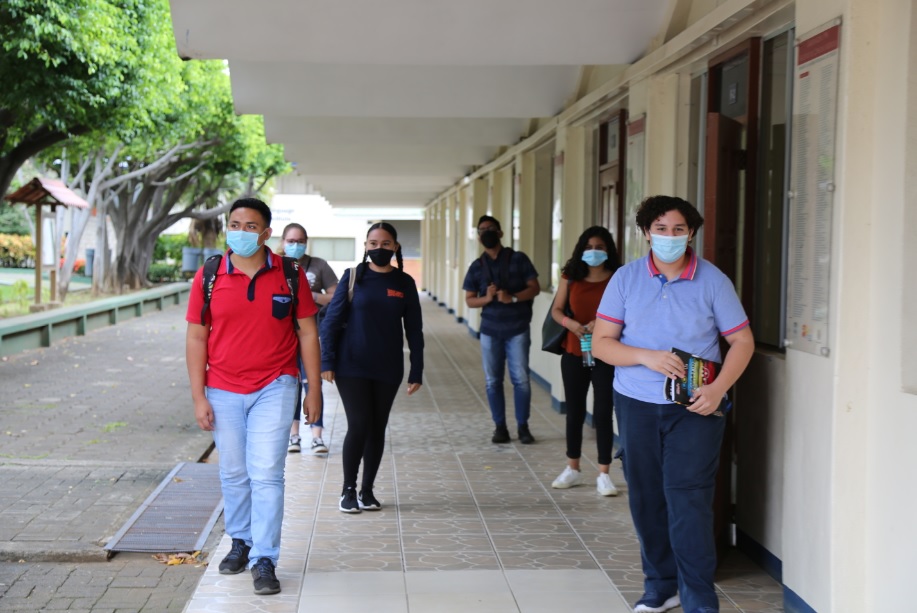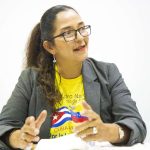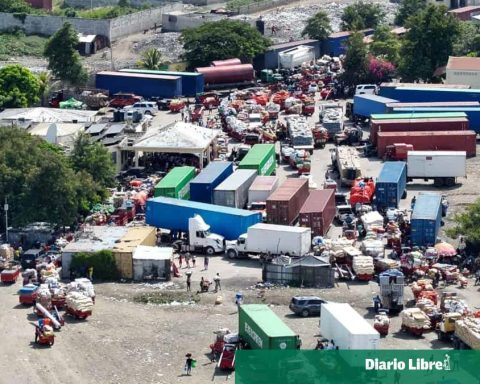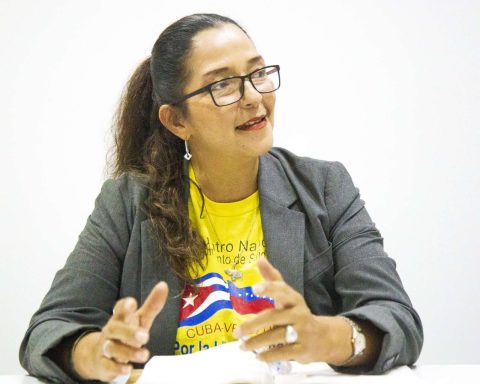Students of the Central American University (UCA) —in interviews with CONFIDENTIAL— affirmed that they are under “general uncertainty”, after learning of the Ortega decision to cancel this week the Polytechnic University (Upoli)recognized as a bastion of protests during the April 2018 Rebellion.
The Catholic Agricultural University of the Tropics (Ucatse), the Paulo Freire University (UPF), the Popular Association of Nicaragua (Uponic) and the Association for Humanitarian Studies (Uneh) were also cancelled. On December 13, 2021, the Universidad Hispanoamericana (Uhispam) was the first to be stripped of its legal status.
“Part of the student community of the UCA wrote to us worried about the situation that is taking place with the universities; the concern and uncertainty is widespread,” said “José”, a third-year law student.
He affirmed that the students who are in the last years of their careers are the most distressed in case of a possible or imminent cancellation of the legal status of the UCA.
The UCA resumes this school year 2022 with strong cuts in its budget, after the CNU -supported by rectors faithful to the Government of Daniel Ortega- decided to continue cutting its budget. Between 2018 and 2022, this alma mater has lost 250.9 million cordobas in cuts, which is equivalent to 99.6% of its budget.
The Ucatse, whose rector emeritus is Monsignor Abelardo Mata, a strong critic of the regime’s abuses, has also suffered systematic decreases in its budget, between 2018 and 2022 it was stripped of 51.7 million córdobas (98.1%).
José explains that there are other groups of students who are concerned about the time and resources invested during their time at the UCA and the possibility of having to “start from scratch at another university or join the CNU (National Council of Universities) regimen. with which we do not agree”.
“We study at the UCA because it is an entity of prestige and quality, and if that changes, many of us will leave the UCA because we are not willing to follow the game of the regime, and much less will we accept to graduate with the seal of the UNAN or any other public university, because we know that their training leaves much to be desired, especially in the area of free teaching, freedom of thought and the right to university autonomy”, he stressed.
“Juan”, a third-year student of communication, assured that other concerns are the scholarships offered by the UCA, because they consider that when the cancellation occurs, many would be left out, of the few that the university manages to maintain due to the reduction that follows hurting your budget.
“I have been on a scholarship for three years. I am of limited resources. My mother earns her living as a domestic helper and with great sacrifice she assumes tickets, books and school supplies. We couldn’t afford this college,” she lamented.
Readjust fees, but there is no mention of scholarships
“José” is also a scholarship holder and points out that the CNU administration has said that they are going to “readjust the tariffs”, in cases such as that of Upoli, but “they are not talking about sustaining the scholarships”, for which they fear that they are “the students (if they stay) with their families who will have to assume this new expense in the face of an economic crisis that allows them to survive at a cost.
The Ortega-Murillo regime, through the National Assembly, in the last week ordered the cancellation of 23 non-profit organizations, among these five universities and seven university associations. In all these cancellations the argument is that the affected non-profit organizations “They failed to comply with their obligations under the laws that regulate non-profit organizations in Nicaraguan territory.”
CNU talks about guaranteeing academic continuity
After the cancellations, the National Council of Universities indicated —through a statement— that as of February 2 “it will guarantee the academic continuity” of the students of the canceled universities, but did not explain how this will be possible or if they will maintain the programs. of scholarship of said alma mater.
The president of the CNU, Ramona Rodríguez, in an interview with official media, clarified that the students of the canceled universities will continue their studies in the same campuses where they were enrolled and promised to lower the fees.
The students of the Uhispam —the first university affected by the Ortega disqualifications— it was not until a month and a half after the cancellation was announced that they were notified that they could resume their classes on the university campuses, which are now administered by the CNU and the National Autonomous University of Nicaragua (UNAN). ).
Students contemplate “exit” in case of control of the CNU
The UCA students, who through groups on social networks express their concerns, indicate that -in the event of a possible cancellation- they contemplate leaving said alma mater or looking for options inside or outside the country; others do not know what to do, and some are willing to continue, since they are in their last years of studies and find it “very hard” to start from scratch.
“Many students would be forced to withdraw and look for other opportunities inside or outside the country. Let us remember that for the regime, the UCA student community is a hostile community, where there are students who do not share the act of misrule, and who have demonstrated on multiple occasions, so it is unsafe for these students to continue their career. under the CNU regime because of the consequences that can occur under that scenario,” José explained.
In the midst of all this anxiety, the UCA students try to “feel that they can continue within the university” under apparent normality. The process of registration and registration of classes has already been carried out and they are preparing to resume classes on February 7.

















